Comparing Fractions Normal Worksheets for 8-Year-Olds
5 filtered results
-
From - To
Boost your child's math skills with our "Comparing Fractions Normal Worksheets" designed specifically for 8-year-olds! These engaging and age-appropriate worksheets provide fun and interactive ways for kids to learn how to compare fractions, a fundamental math concept. With clear instructions and colorful visuals, your child will enjoy mastering skills like identifying equivalent fractions and determining which fractions are larger or smaller. Perfect for classroom use or at-home practice, our worksheets promote critical thinking and problem-solving in a supportive learning environment. Download and print today to help your child gain confidence and ease in comparing fractions!
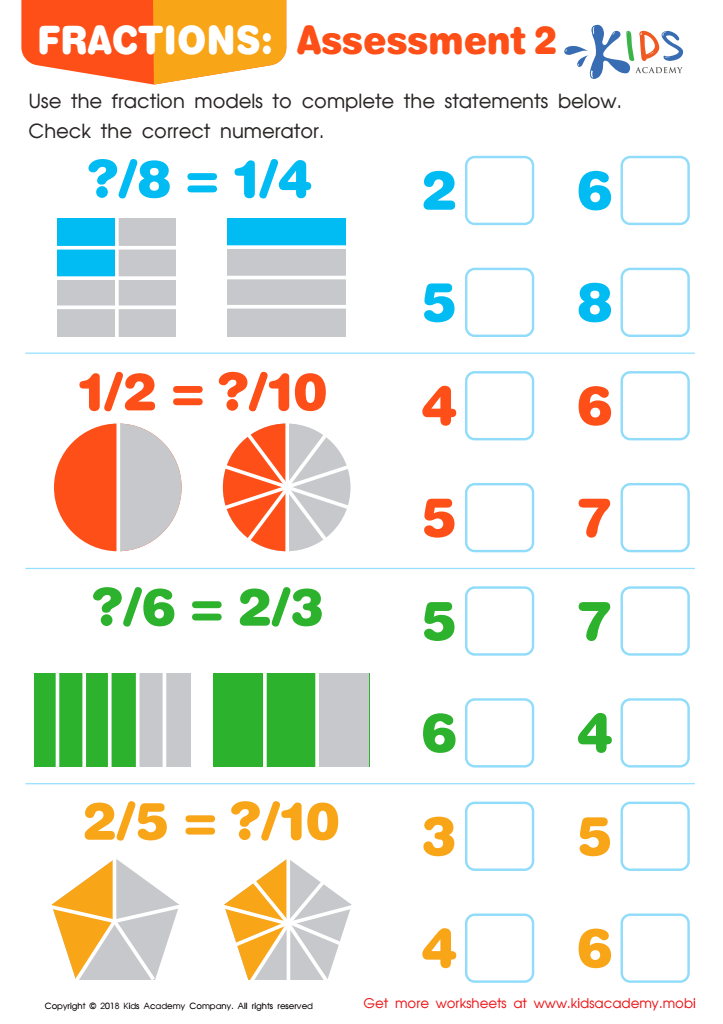

Fractions: Assessment 2 Worksheet
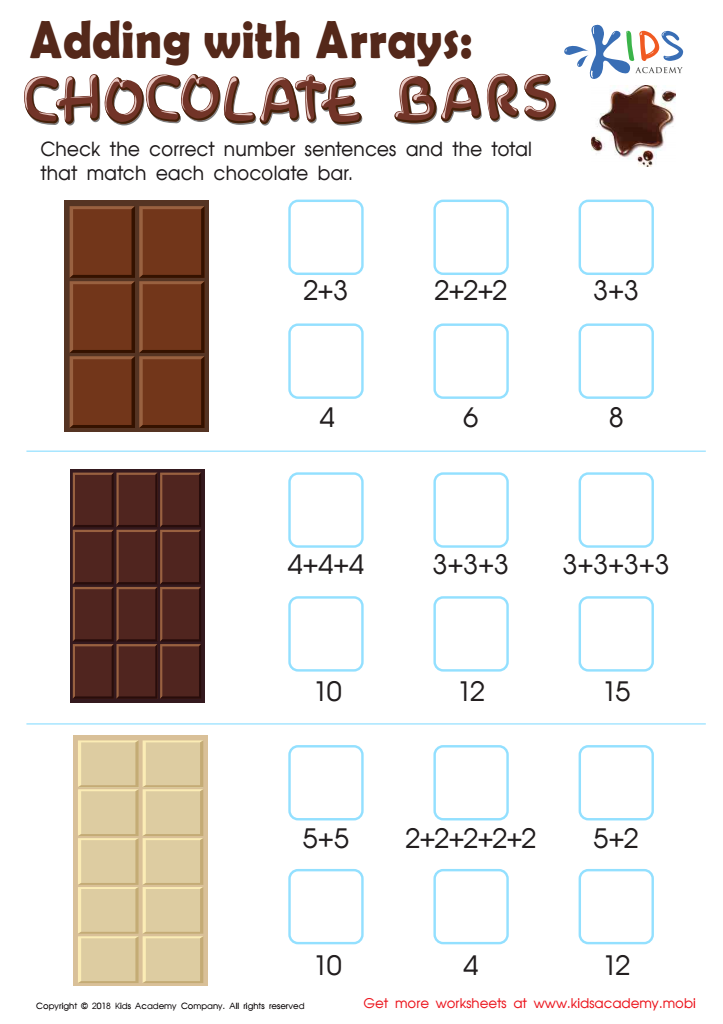

Adding with Arrays: Chocolate Bars Worksheet
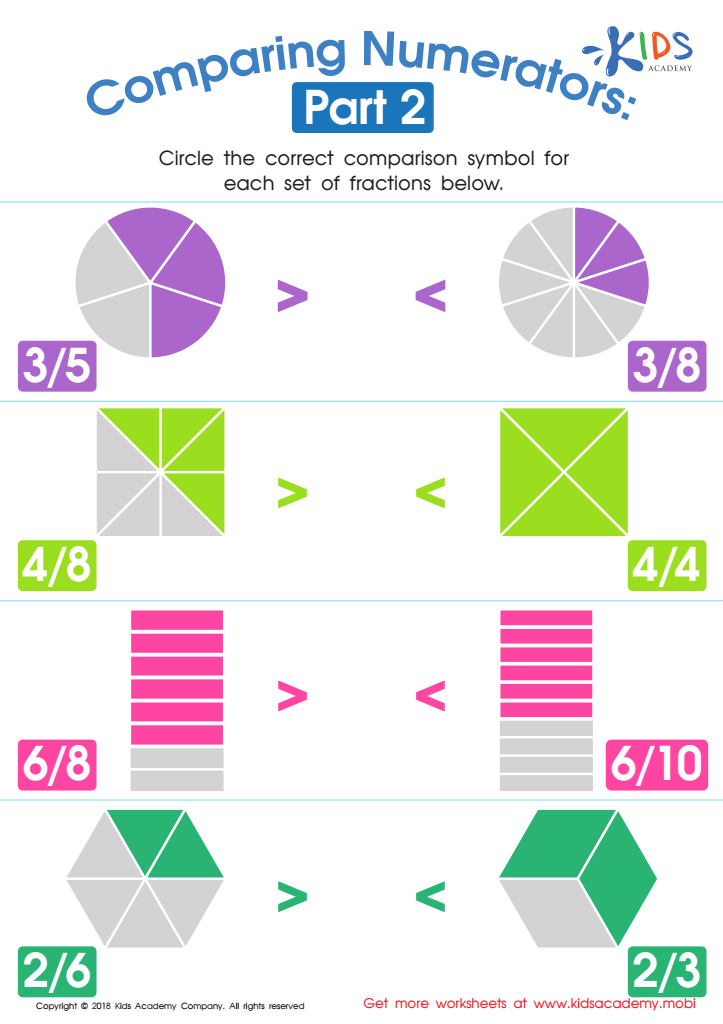

Comparing Numerators Part 2 Worksheet
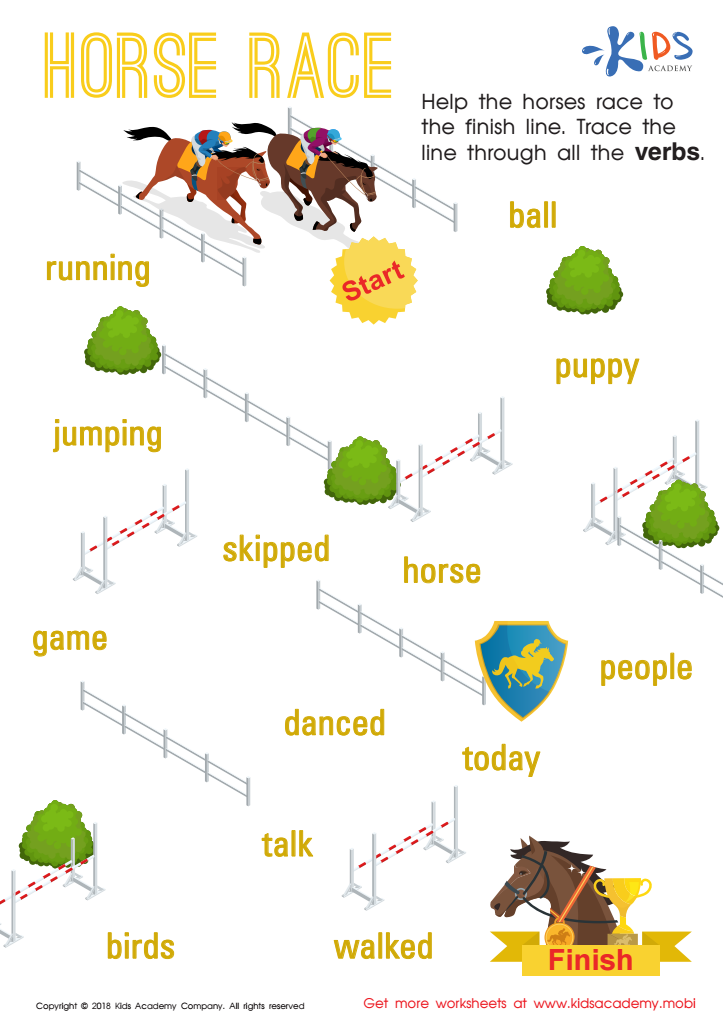

Horse Race Worksheet
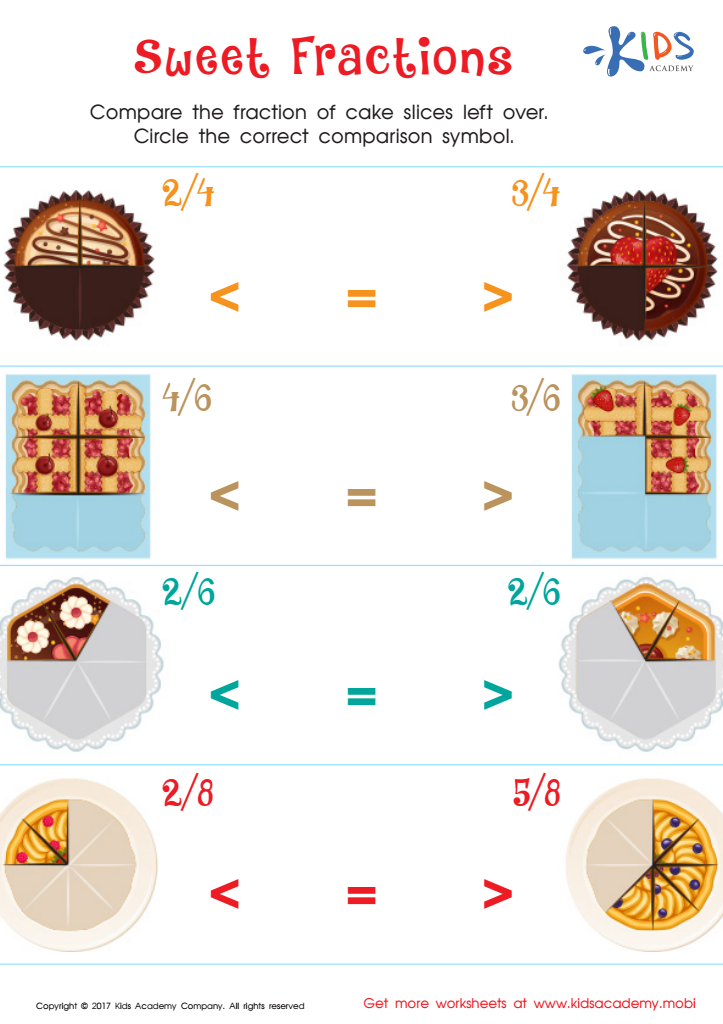

Compare Fractions Worksheet
Understanding how to compare fractions is a crucial skill for 8-year-olds, serving as a foundational concept in mathematics. Parents and teachers should prioritize this topic because it helps children develop critical thinking and problem-solving abilities. Comparing fractions enhances students’ number sense, allowing them to understand relationships between numbers and quantities more deeply.
By mastering fraction comparisons, children can tackle real-life situations more effectively, whether it’s dividing a pizza, measuring ingredients for a recipe, or managing finances. This skill supports their overall mathematical proficiency, which is essential as they advance to more complex topics like ratios, percentages, and algebra in later grades.
Furthermore, teaching this concept fosters collaboration and communication skills, as children often work in pairs or groups to compare fractions using different approaches. This collaborative learning environment boosts their confidence and willingness to engage with math.
Finally, a solid understanding of fractions can improve standardized test performance, where these concepts often appear. For parents and teachers, instilling a love for math through engaging lessons on comparing fractions can ignite a lifelong interest in learning, ensuring children not only succeed academically but also enjoy the process of discovery in the world of mathematics.
 Assign to My Students
Assign to My Students


.jpg)













